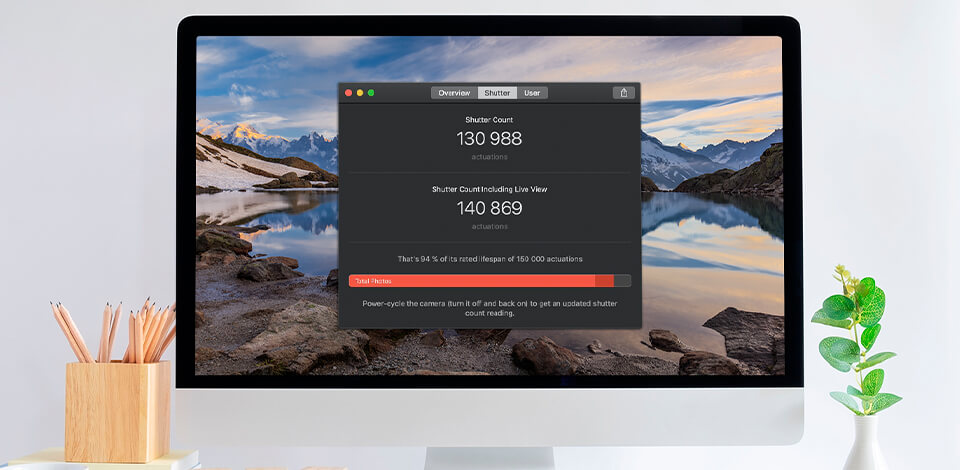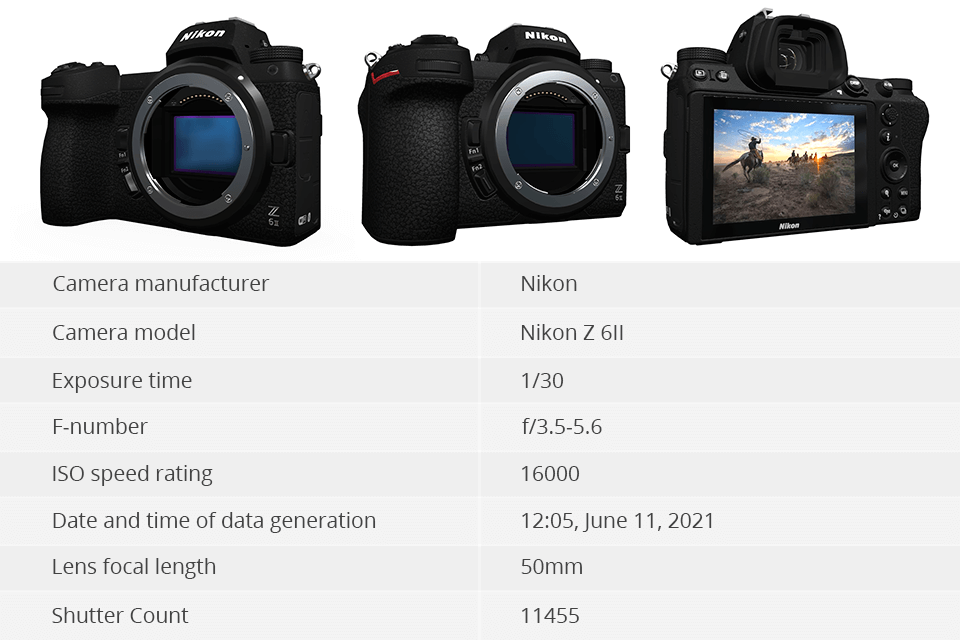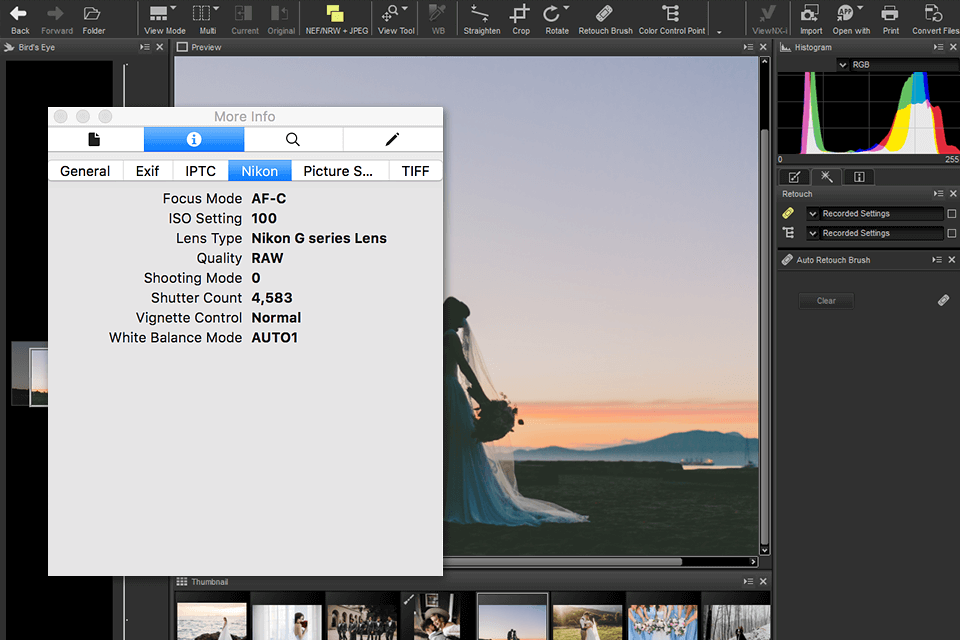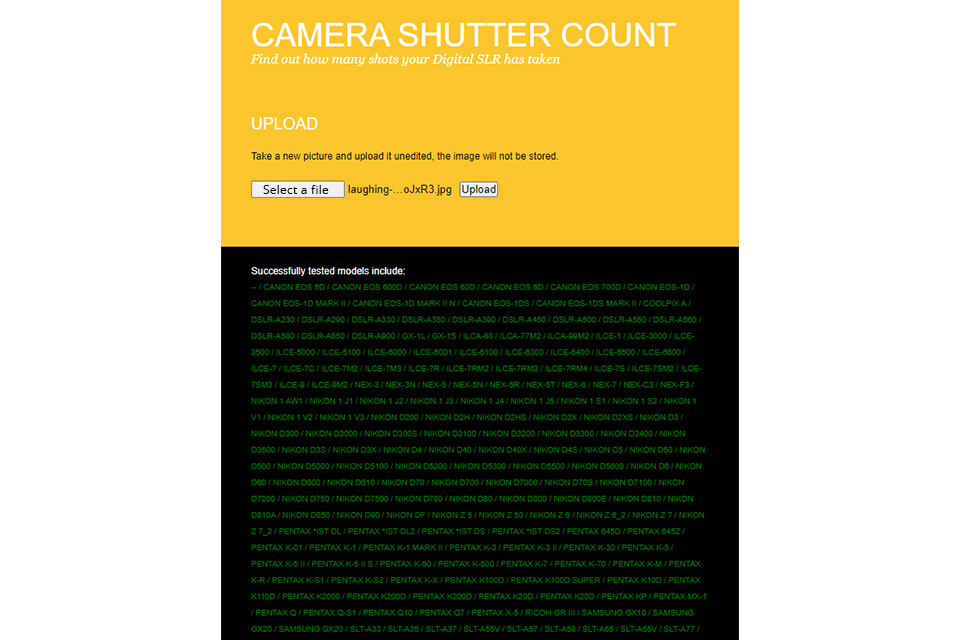
If you are a beginning photographer and want to buy a used Nikon camera, or have been using your model for more than 5 years, then you are probably wondering how to determine a Nikon shutter count. This article dwells on the Nikon camera lifespan. Also, you will find out how not to become a victim of scammers when shopping for a used model.
It is necessary to understand that a shutter count isn’t displayed in the Nikon photography camera menu. Instead, you can find it by viewing image metadata (EXIF), using programs, or online services. Check out 6 quick, easy and free ways to determine your Nikon shutter count.

EXIF is a part of JPEG and NEFF files. It includes your photo metadata such as a shutter counter, camera, model, shutter speed, ISO, exposure, focal length, lens info, geo, and other photo editing manipulations. The easiest way to check EXIF data is to use Photoshop since this program allows you to view photos in any format.
To find this section in Photoshop, click "File" - "File info". Choose "Advanced" in the pop-up window. In the "Schema" folder, you will find "aux: ImageNumber: and a shutter count".

The easiest and fastest option I've found for Mac if you are using the best camera from Nikon is to use the “Preview” app. It is integrated into the macOS, so you don't need to download anything.
Open an image in a Preview application and upload the NEF or JPEG file you want to use. Go to “Tools” - “Inspector” or use the keyboard shortcut “CMD + I”. You will see a small pop-up screen with general information. In the pop-up window, click the tab with the letter "i". On the next screen, click the “Nikon” tab. This is the manufacturer's notes section. Below, you will see the "Shutter Count" section.

One of the easiest ways to find out the Nikon shutter count is to use the online CameraShutterCount service, which is available completely for free. Once you visit their website, you will see the most popular Nikon models that have already been tested and got positive results when determining the number of shutters.
To get the needed info, click the Upload button and select a JPEG or NEFF photo. In a few seconds, the service will display the number of actuations. Important! Once you leave the website, your photos are automatically deleted. The service doesn’t collect information about images.
No less effective way to find out Nikon shutter count is to use the third-party ShutterCheck app. For newer models like Nikon Z 6II, the app displays detailed shutter actuation info. Aside from a number of shutter releases, you can check out separate values for photos taken using a viewfinder and Live View.
ExifTool is a platform-independent Perl library that allows you to view and edit EXIF data without using a third-party application. The utility is intuitive and suitable even for beginners. All you need is to follow the easy installation guidelines. With ExifTool, you can view and edit metadata of your photos. This program supports all RAW files, including Nikon's NEFF.
If you are going to purchase a used DSLR camera, I recommend contacting technical services, where specialists will perform a full technical checkup of your device. Aside from determining the number of shutters, they can check other camera components such as matrix, flash, buttons, etc.
When buying a second-hand camera, make sure that the number of shutter actuation doesn’t exceed 30,000 - 50,000. Otherwise, you will purchase a device with a short lifespan.
As practice shows, most DSLR cameras have up to 150,000 - 200,000 shutter actuations. When the shutter reaches these numbers, the camera starts working incorrectly.
When shooting RAW + JPG, the shutter is released only once each time a version is created. Thus, a RAW version and a JPG version will have the same number of actuations.
Lightroom can’t read the manufacturer's notes section that stores shutter information. That is why it is senseless to try reading EXIF data in Lightroom.
No, a high shutter count doesn't have any impact on image quality and does not decrease it over time.